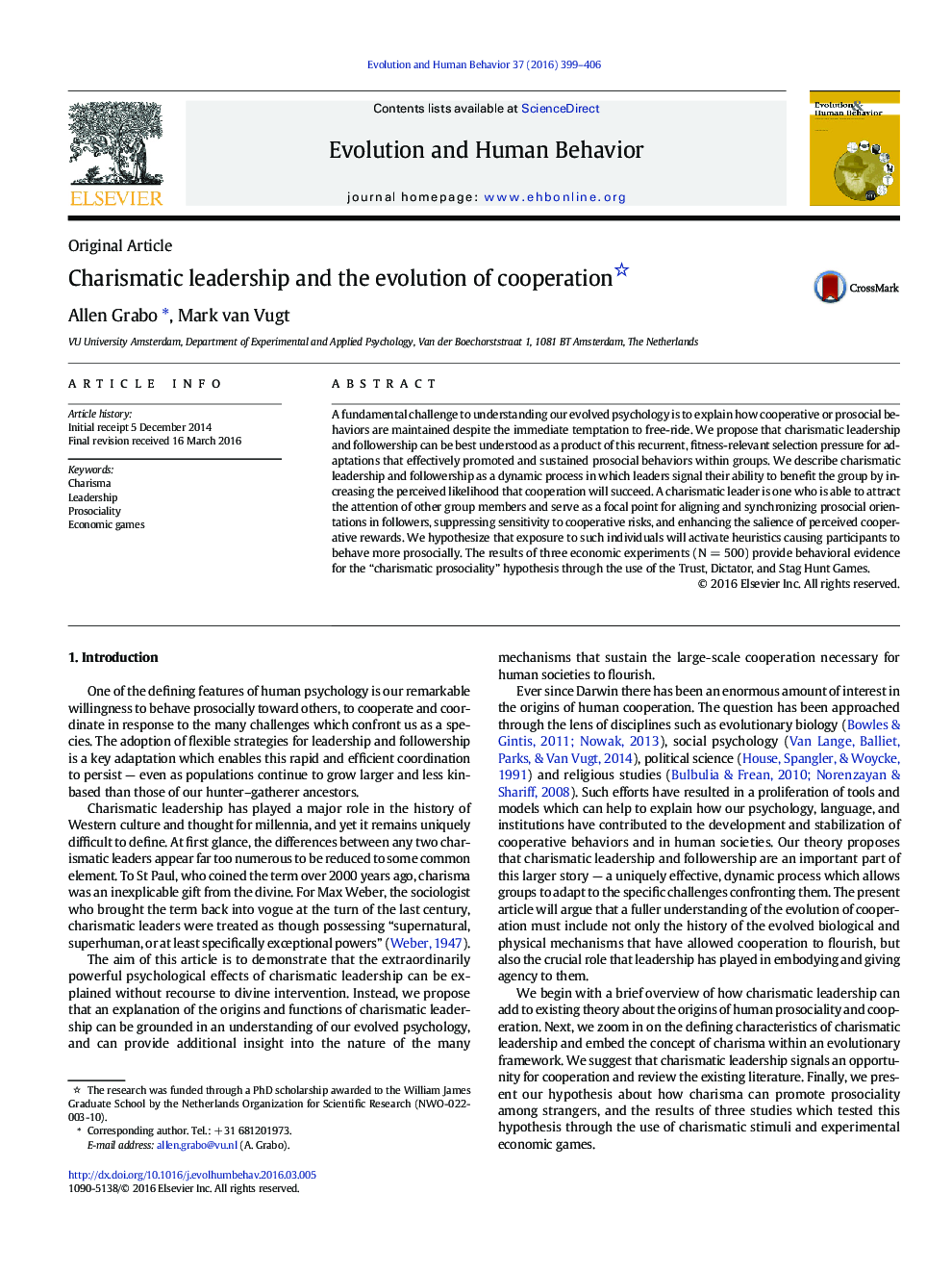| Article ID | Journal | Published Year | Pages | File Type |
|---|---|---|---|---|
| 5044836 | Evolution and Human Behavior | 2016 | 8 Pages |
A fundamental challenge to understanding our evolved psychology is to explain how cooperative or prosocial behaviors are maintained despite the immediate temptation to free-ride. We propose that charismatic leadership and followership can be best understood as a product of this recurrent, fitness-relevant selection pressure for adaptations that effectively promoted and sustained prosocial behaviors within groups. We describe charismatic leadership and followership as a dynamic process in which leaders signal their ability to benefit the group by increasing the perceived likelihood that cooperation will succeed. A charismatic leader is one who is able to attract the attention of other group members and serve as a focal point for aligning and synchronizing prosocial orientations in followers, suppressing sensitivity to cooperative risks, and enhancing the salience of perceived cooperative rewards. We hypothesize that exposure to such individuals will activate heuristics causing participants to behave more prosocially. The results of three economic experiments (NÂ =Â 500) provide behavioral evidence for the “charismatic prosociality” hypothesis through the use of the Trust, Dictator, and Stag Hunt Games.
